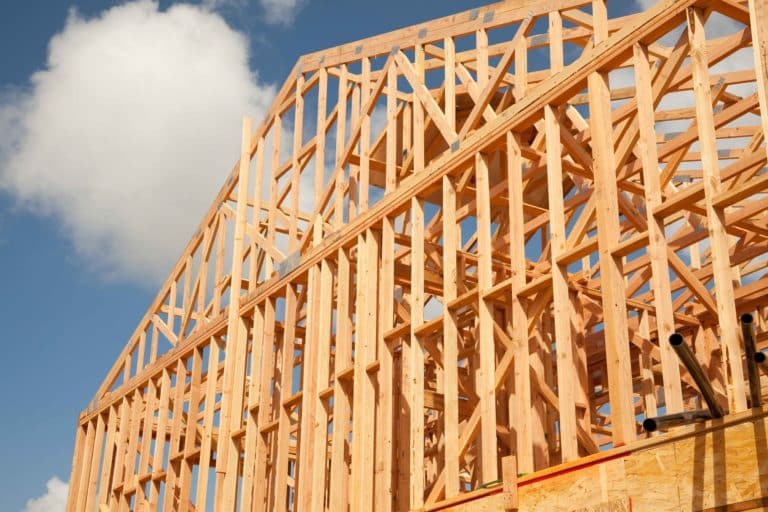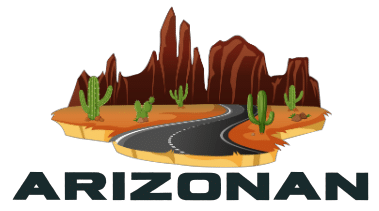Home Inspections
Home Inspections

Your home purchase is one of the biggest investments of your life, and it’s important to know exactly what you’re buying. The best way to ensure this is through a professional, thorough home inspection.
Thank you for reading this post, don't forget to subscribe!(NOTE: While this material speaks primarily to buyers, it’s also a good idea for sellers to do an inspection prior to listing their home. See more in Tips on Selling a House.)
Why You Need a Home Inspection: Open or Close
In your excitement to buy a home, it’s easy to miss a small crack in the foundation, some leaky pipes under the house, or a roof that needs to be replaced.The sellers worked hard to make the home look as desirable as possible, but looks don’t tell the whole story. That’s where your home inspection comes in.
What about inspections for sellers?
For sellers, a home inspection is also a good idea prior to listing the home for sale. An inspection can help you turn up issues ahead of time so there will be no surprises when serious buyers start inquiring. Knowing in advance means you’ll be able to consider all your options – either making repairs before listing or pricing your home to account for anything you’re not going to fix.For more information about inspections for home sellers, see the Tips on Selling a House.
Find The Perfect Home !
Search Cities In Arizona
What does a home inspection include?
A general home inspection will evaluate the house and adjoining structures from top to bottom, inside and out, including but not limited to:
Outside
Roof, porches, driveways, garage, drainage, retaining walls, grading, and plants or vegetation that may impact the home’s condition
Inside
Electrical and plumbing systems; foundation; heating, ventilation and air conditioning systems; water heater, septic system, electrical system, windows, doors, floors, ceilings and walls
What a home inspection doesn’t cover
The home inspector can’t make any alterations in the course of inspecting a home – so there’s no digging up the ground, lifting carpets, knocking out walls, etc.
Also consider that a home comprises tens of thousands of parts, pieces, nooks and crannies. An inspector will look at a representative sampling, but there’s simply no way to check every single element.
RE/MAX Home Inspection Tip: Many home inspectors know about major appliance recalls, but do your own research by noting model numbers and then checking for trouble online.
RE/MAX Home Inspection Tip:If an area of the house is not accessible because of barricades, such as boxes piled in front of a door, request that the seller remove these to allow for a thorough inspection.
Specialized Inspections –
When Do You Need One?
Some states and cities require additional inspections on top of a general inspection. Beyond that, you may just want a specialized inspection due to a special circumstance or particular concern you or your general inspector may have.
Examples of specialized inspections:
• Sewer inspection
• Chimney inspection
• Mold inspection
• Lead inspection
• Asbestos inspection
• Pest inspection
• Inspection of a special feature such as a swimming pool or hot tub
RE/MAX Home Inspection Tip: Check with your agent to see which inspections are required in your area and which may not be required, but are standard.
RE/MAX Home Inspection Tip: If a home inspector tells you not to attend the inspection, find someone else. This is a classic red flag.
10 Common Home Inspection IssuesOpen or Close
Here are 10 common problems that general home inspections bring to light.
1. Plumbing:
• Leaking around exposed pipes, particularly with washing machines.
• Outdated pipes. It’s common to find old Polybutylene pipes, which your inspector will recommend replacing.
2. Electrical:
• Ungrounded outlets. You can recognize these by their two-slot configuration versus the three-slot configuration of a grounded outlet. Most inspectors will recommend that you upgrade to grounded outlets.
• Improperly wired breaker boxes. Common hazards include two circuits on a single-pole breaker, oversized breakers, double-pole breakers that supply two single circuits, and wires that cross over the panel’s center.
3. Heating:
• Leaks in piping or heating unit; air ducts that need cleaning.
• Not enough insulation. Insulation requirements vary by location, but an improperly insulated home will always lead to high energy bills.
4. Drainage:
• A wet basement is a problem because it indicates that water isn’t properly draining away from the home.
• Mold in the air. When water isn’t draining properly, it can result in mold in the air. Mold can also be a byproduct of dry rot.
5. Roof:
• Torn and cracked shingles, or flashing that’s not properly installed. Each of these can cause roof leakage.
6. Walls:
7. Dry rot:
• This occurs when fungus grows in your home’s wood due to high condensation. The affected wood will have to be replaced.
• Another main concern is figuring out why the condensation is occurring in the first place.
Home Inspection Myth: You don’t need a home inspection for a newly constructed home. Not so. Property defects come up on new construction all the time. Just because the house is new doesn’t mean it was built properly.
Home Inspection Myth: You don’t need a home inspection if you’re buying a home warranty. Home warranties rarely cover everything. You’ll want to know of any potential problems before your closing so that you the seller can take care of them.
Five Deal-Breakers from an Inspection Open or Close
Easily fixed pipes or a few outdated electrical outlets are no reason to back out of a deal. However, other issues that come up during a home inspection should give you pause to think about whether or not to proceed.
Here are some red flags that warrant closer attention.
1. Water intrusion and grading problems Water in the basement, condensation on the walls and mold in the air indicate moisture and drainage problems that could cost a lot of money to fix. These issues often suggest improper grading.
2. Structural damage Cracks in walls, ill-fitting windows and doors, and visibly shifted bricks on the exterior are all signs of structural damage. Your cost to fix these types of problems? Anywhere from $20,000 to $200,000.
3. Roof repairs Old shingles, water stains on the ceiling or rotting rafters are all signs that the roof may need to be replaced. This is another extremely expensive undertaking, so pay close attention during the roof inspection.
4. Window replacement Windows that don’t work, fit the frame poorly or show condensation between the panes may need to be replaced. Depending on the number of windows, this could easily run between $5,000 and $8,000.
5. Insect infestation A general inspection should show you whether the home has a pest problem, which may prompt a need for a more detailed report from a specialist. This is a serious issue because some pests can cause structural damage.
RE/MAX Home Inspection Tip: Condo or co-op boards pay for many repairs, but remember that the costs will get passed on to you eventually – so it’s good to know the building’s overall condition from the start.
Home Inspection ChecklistOpen or Close
Attend your home inspection to see first-hand what the inspector notes, and learn some important details about the house — like how to use the water, sprinklers, heater, electricity, etc.
When attending your inspection:
• Wear casual clothes and comfortable shoes. You may find yourself crawling under and behind things to see what the inspector is pointing out.
• Plan for the inspection to take two or three hours.
• Bring pen and paper, copies of any inspection reports provided by the seller, and any disclosure reports that identified past problems so the inspector can follow up.
• Feel free to ask questions, but give the inspector time and space to work.
For most people, buying a house is a major milestone in their lives. As excited as they may be about purchasing a new home, buyers should temper their enthusiasm by making sure that they are getting a house that is well worth the investment. Having the home inspected carefully prior to closing could spare them from buying a house that could drain their finances and leave them dissatisfied with their purchase.
Home Inspection Overview
A home inspection is a process that involves thoroughly examining the home and its adjoining structures for any signs of defects or damages. When an inspector goes through a home for this purpose, he or she is on the lookout for anything that could cause the house to depreciate in value or call into question the price for which the home is listed.
Among other defects, the inspector will look for damages like cracks in the foundation, leaky pipes, or holes in the roof. He or she will then reveal these defects to both the buyer and the seller so both parties can renegotiate the price or the seller can have them repaired before the transaction is closed.
Both the buyer and the seller can benefit from a home inspection. Sellers, for instance, are well-advised to have their homes inspected before they listed them for sale on the local market.
A home inspection will help the seller price the house and also decide whether or not to have damages repaired prior to listing. If the damages go unaddressed, they could drop the price in the house or motivate the seller to consider offers that are lower than the asking price.
Buyers likewise are typically required to have their prospective homes inspected prior to closing. Once they are aware of any damages or defects to the home, they can ask the seller to have these issues repaired before closing. If the seller refuses, the buyer can renegotiate the price or back out of the contract.
A home inspection benefits both the seller of the home and the people who want to buy it. Most states require a professional home inspection before a home sale can be closed and finalized.
Typical Home Inspection
So exactly what does a home inspector look for when he or she is inspecting a home. To be more specific, a professional home inspector will closely scrutinize both the inside and outside of a house as well as any adjoining structures to it.
When the inspector examines the inside of a house, he or she will closely look at structures like:
- the electrical system
- plumbing
- foundation
- the heater or furnace
- the air conditioning system
- the ventilation system
- water heater
- septic system
- walls
- doors
- windows
- flooring
- ceilings
When it comes to inspecting the exterior of the home, the inspector will examine structures like:
- the roof
- porches
- driveway
- garage
- drainage system
- retaining walls
- grading
- plants or vegetation that could impact the structure and integrity of the house
The inspector will then report back to the seller, the buyer, and the involved real estate agents and attorneys. Based on the findings of the inspection, all involved parties can then decide whether or not to renegotiate the deal or to allow the buyer to back out of the contract if the seller cannot or chooses not to repair the indicated damages.
It is important to note that a home inspector will only observe and inspect the surface appearance of the home. The inspector cannot make any alterations or changes to the house. He or she also cannot remove carpeting, tear into walls, or lift up shingles when inspecting the home. It is impossible for an inspector to examine every minute inch of the home.
As such, it is crucial that the buyer and his or her real estate agent or attorney walk through and examine the home themselves. They should use their own best judgment in addition to the professional home inspection before deciding whether or not to close the transaction.
Specialized Home Inspections
In some circumstances, buyers or sellers may insist on having a specialized home inspection performed before closing. A specialized inspection can be done if the buyer or seller has concerns about the condition of the home. It can also be performed on the recommendation of the general home inspector.
During a specialized home inspection, the person conducting it will look more closely at the condition of the house. This type of home inspection can reveal:
- damages to the chimney
- issues with the septic system
- the presence of mold
- the existence of lead
- pest infestations
- damages or concerns to exterior structures like the swimming pool or hot tub
Some states require specialized home inspections before buyers can complete the purchasing process.
A home inspection can protect both the buyer and seller of a house. It can reveal damages that could drop the asking price, alert the seller to defects that need to be addressed, or cause a buyer to back out of a contract. It allows both parties to ensure that the home is worth the price for which it is listed.

